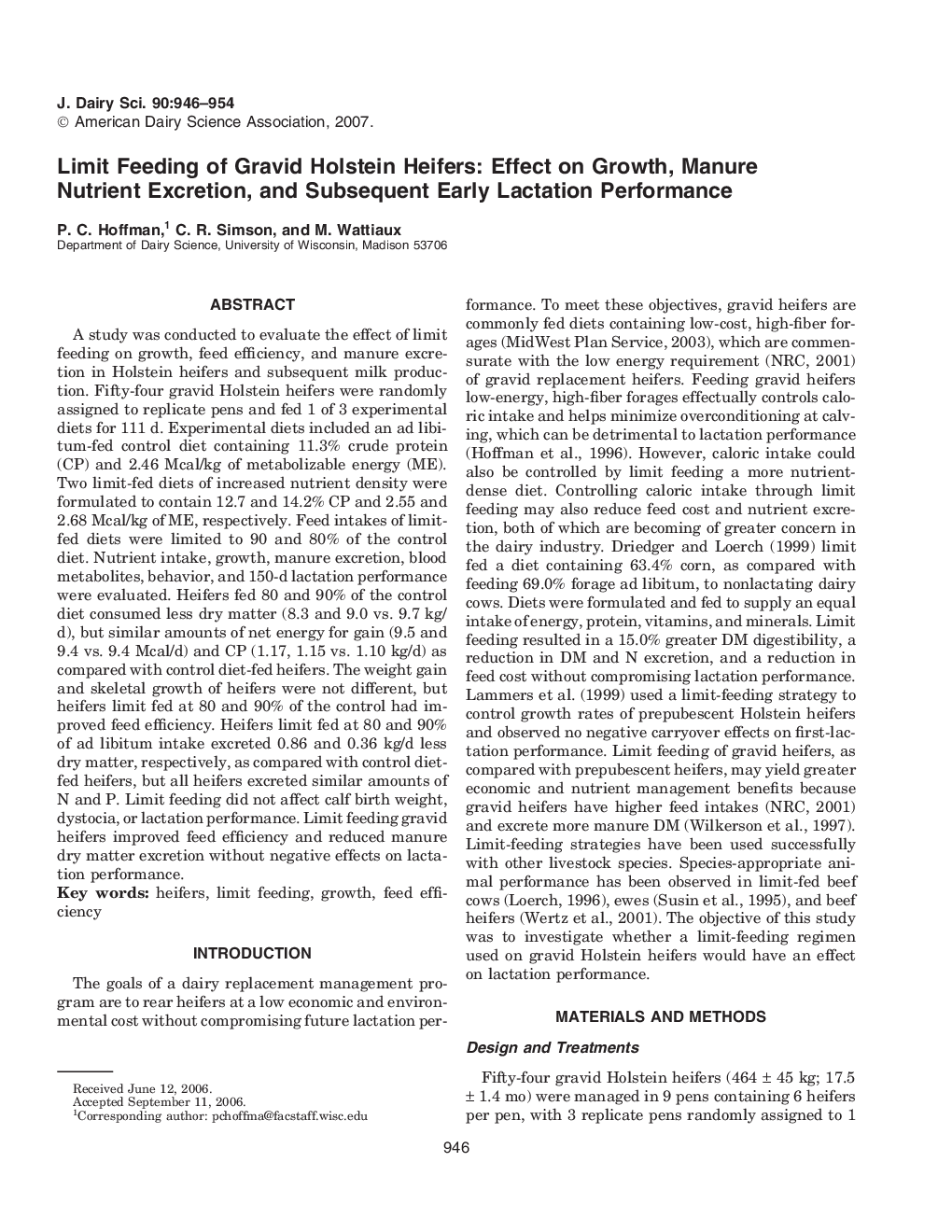| Article ID | Journal | Published Year | Pages | File Type |
|---|---|---|---|---|
| 2440360 | Journal of Dairy Science | 2007 | 9 Pages |
A study was conducted to evaluate the effect of limit feeding on growth, feed efficiency, and manure excretion in Holstein heifers and subsequent milk production. Fifty-four gravid Holstein heifers were randomly assigned to replicate pens and fed 1 of 3 experimental diets for 111 d. Experimental diets included an ad libitum-fed control diet containing 11.3% crude protein (CP) and 2.46 Mcal/kg of metabolizable energy (ME). Two limit-fed diets of increased nutrient density were formulated to contain 12.7 and 14.2% CP and 2.55 and 2.68 Mcal/kg of ME, respectively. Feed intakes of limit-fed diets were limited to 90 and 80% of the control diet. Nutrient intake, growth, manure excretion, blood metabolites, behavior, and 150-d lactation performance were evaluated. Heifers fed 80 and 90% of the control diet consumed less dry matter (8.3 and 9.0 vs. 9.7 kg/d), but similar amounts of net energy for gain (9.5 and 9.4 vs. 9.4 Mcal/d) and CP (1.17, 1.15 vs. 1.10 kg/d) as compared with control diet-fed heifers. The weight gain and skeletal growth of heifers were not different, but heifers limit fed at 80 and 90% of the control had improved feed efficiency. Heifers limit fed at 80 and 90% of ad libitum intake excreted 0.86 and 0.36 kg/d less dry matter, respectively, as compared with control diet-fed heifers, but all heifers excreted similar amounts of N and P. Limit feeding did not affect calf birth weight, dystocia, or lactation performance. Limit feeding gravid heifers improved feed efficiency and reduced manure dry matter excretion without negative effects on lactation performance.
